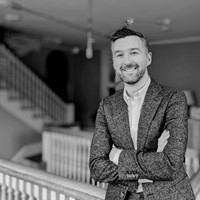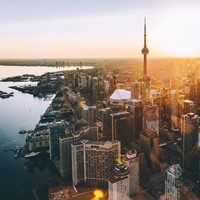What was presented in a day will benefit us all for years.
Bob Liodice opened his organization’s Advertising Financial Management Conference with an observation many have had about the pandemic: The world will never be the same again.
The CEO didn’t leave it at that. He said the world of advertising will not return to the normal of early 2020. “But I’m an optimist. I look at things through rose-colored glasses. My conclusion is the world will be better.” The pandemic pushed marketers to be better, Liodice continued. It made advertisers more productive, more creative, more empathetic.
Other changes accompanied this transformation. The pandemic uprooted consumer habits, putting a particular emphasis on the digital in a contactless environment. Marketers report that online shopping is now the preferred purchasing method for any kind of product — with almost zero exceptions.
Where do these changes leave marketing?
For Liodice, the post-pandemic future is giving marketers a moment. “It is not a time for the timid. It is a time for big opportunities and equally big challenges. There are billions of dollars of growth. Let’s take back our industry and own and lead the agenda.”
Below are five takeaways from Liodice and others who spoke during day one of ANA’s conference.
- Marketers want trust, but they’ll have to work to find it.
Trust is highly sought after in marketing, said Ivan Pollard, former global CMO at General Mills. “Agencies and brands are desperately seeking solutions,” Pollard continued. “They’re looking for a new model — a model that gets us back to the old days of trust.”
To find trust, agencies and brands must push ahead on the path forward to rebuild credibility and relearn to trust each other. Pollard emphasized how these themes would run throughout the conference, pointing to several speakers, including Johannes Leonardo’s CFO Bill Afonso on agency partnerships, along with FirmDecision’s Christine Moore and Patricia McGregor to discuss how brands can best govern those relationships.
Pollard highlighted the importance and value of agencies. “There are few things as powerful as big, bold ideas,” he said. “These come from great agencies.” Good agents see what clients can’t see, do what clients don’t do and make what clients can’t make. And most importantly, Pollard said, agencies employ people who are able to unite vision and action to make magic.
- Diversity and inclusion are challenging marketers on all fronts.
In his opening remarks, Liodice implored attendees to invest in multicultural marketing. Marketers limit themselves by ignoring minorities. “It’s more than just the nice thing to do — it’s demanded,” Liodice said. “There’s a ton of growth, there’s a ton of money when we dive in and take advantage of the work taking place today.”
Diversity and inclusion efforts aren’t just happening in marketing’s external work. Marketers are setting goals for the industry itself. For example: “Corporates are beginning to understand the importance of supplier diversity,” said Simona Rabsatt-Butler, Senior Director of Global Sourcing at Visa. “Not only is the country talking about it, but employees are more apt to speak out about it.”
According to a recent ANA survey about supplier diversity, 45% of marketers have increased their spend on diverse suppliers, with many using diverse suppliers for agency and production services.
Still, there’s work to do, Rabsatt-Butler said. Nearly 60% of ANA respondents reported they spend less than 7% of marketing with Tier 1 Diverse Suppliers — direct spend with a diverse supplier.
This gives procurement an opportunity. “This is a great area where you can be bold,” Rabsatt-Butler said. “Ask the question. Push the front line.”
- Fraud has always been a problem, and it’s getting worse.
It’s 2021, and fraud is still happening, remarked Reed Smith Partner Keri Bruce. “What do you need to be doing as a brand?” she asked. “You can’t solve this on your own.”
Boards and audit committees will have to double their efforts to fight fraud, Bruce said. It’s no easy task. “With the demise of cookies, the change in platform IDs and the increased prominence of first-party data, this ecosystem is becoming more complex.”
Brands can fight fraud by setting up robust contracts and following through with good governance practices.
- Automation is the future of the agency workforce.
Artificial intelligence is forging the future of agencies, Forrester Research Principal Analyst Jay Pattisall said. The burgeoning technology augments talent with its computational capabilities — it frees employees to do higher value tasks.
“We’re not replacing people. We’re augmenting them. We’re allowing for a human-machine team,” Pattisall said. “The future of work is rooted in AI. The future of the agency workforce is just as rooted in automation.”
There’s automation in insights, analytics, research, all the way through media planning, media activation, governance and operations, Pattisall said. Automation is appearing in content, production and creative phases. And it carries through into back-of-house operations.
“The future of work is also the future of marketing,” Pattisall said. “It’s the future of agencies. It’s the future of procurement.”
- Creative bravery is the spark brands need.
Initial excitement about a project drums up momentum, but obstacles are leaving brands and agencies unsatisfied. Enter creative bravery.
Creative bravery is the brainchild of Johannes Leonardo says Bill Afonso, their Chief Financial Officer. Creatively brave work challenges perspectives, gives brands the opportunity for self- determination and unlocks the power of organizations to do good.
Several common obstacles are standing in marketers’ way to invigorating work. At the top of Afonso’s list: Unclear deliverables, unsustainable payment terms and long pitch processes. By eliminating these roadblocks, creatives can set their work to a new, more experimental rhythm. “Great ideas can come in all forms, and brands need to be open to different ways of thinking and different mediums,” Afonso said.
How can brands inspire creatively brave work? Afonso offered three steps: eliminate barriers to entry for partners, give workers the freedom to fail and invest in your relationships.
We’ll leave you with this thought from Afonso on day one at ANA: “Let creative thinkers play jazz.”



